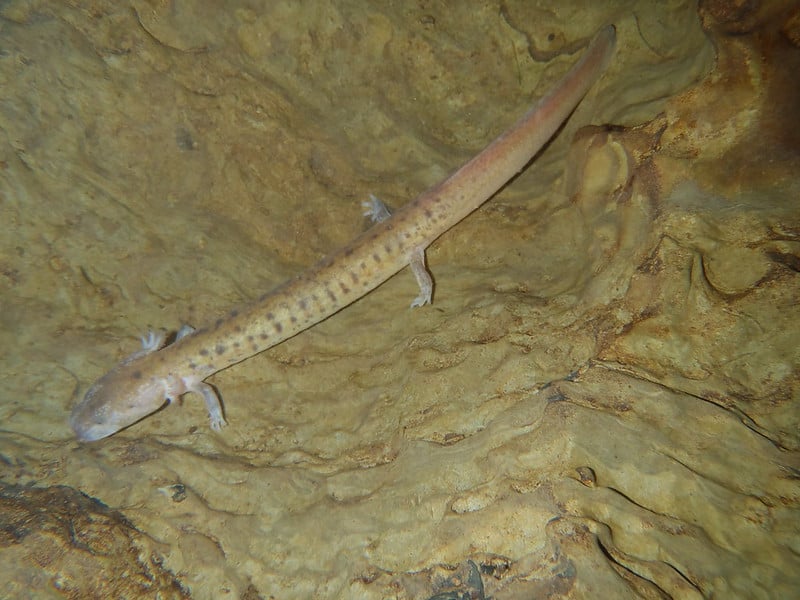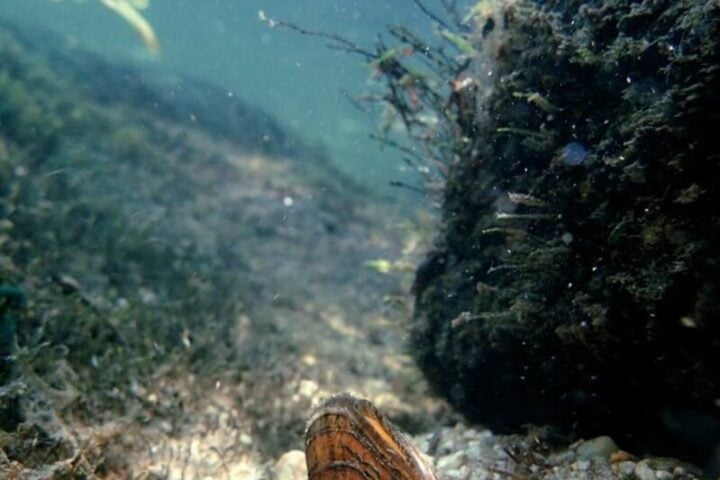A rare pink-gilled salamander found only in East Tennessee caves may receive federal protection, following a new agreement between environmental groups and wildlife officials. The U.S. Fish and Wildlife Service will reevaluate the Berry Cave salamander’s status by August 2029, potentially reversing its 2019 decision to deny the species protection.
The agreement stems from a lawsuit filed by the Southern Environmental Law Center (SELC) and the Center for Biological Diversity (CBD) in 2024. Environmental advocates argued that the 2019 denial of protection violated federal law and may have been influenced by an agency quota system for denying species protections.
“This agreement is an important step toward securing long-overdue protections for the Berry Cave salamander and correcting a harmful mistake,” said Liz Rasheed, SELC staff attorney.
The situation is increasingly urgent. Survey data shows the salamander population in Meads Quarry Cave, once a stronghold for the species, dropped by 65% between 2004 and 2019. The salamanders face mounting pressure from urban development in East Tennessee, with some caves hosting only a single observed specimen.
Similar Posts
These unique amphibians spend their entire lives in caves and are distinguished by their pink feathery gills. Their protection could have broader environmental benefits. “Protecting Berry Cave salamanders under the Endangered Species Act also means funding to improve Tennessee’s drinking water quality,” noted Chelsea Stewart-Fusek, CBD attorney.
The Berry Cave salamander’s plight highlights ongoing challenges in species conservation and urban development. The upcoming status review will determine whether these rare cave-dwellers receive the federal protections that environmental advocates argue are essential for their survival.








![Representative Image: European Starling [49/366]. Photo Source: Tim Sackton (CC BY-SA 2.0)](https://www.karmactive.com/wp-content/uploads/2025/04/Starlings-Drop-82-in-UK-Gardens-as-Birdwatch-2025-Reveals-Record-Low-Count-Since-1979-720x480.jpg)









